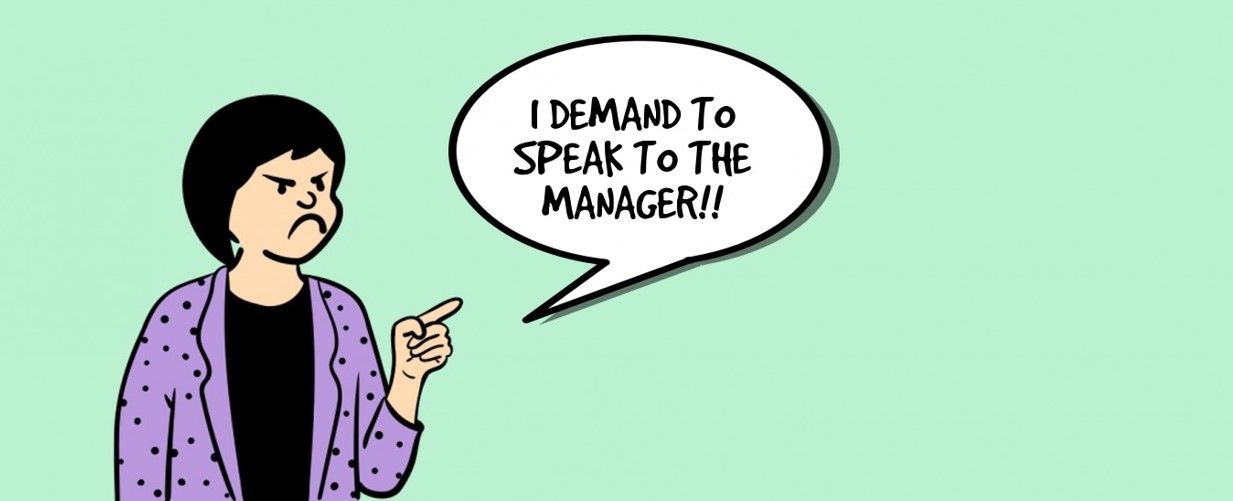
This year, the term ‘Karen’ became largely popular on social media platforms as an insult. The official definition is: Karen is a pejorative slang term for an obnoxious, angry, entitled, and often racist middle-aged white woman who uses her privilege to get her way or police other people’s behaviors.
As featured in memes, Karen is generally stereotyped as having a blonde bob haircut, asking to speak to managers to voice complaints or make demands, and being an anti-vaccine, Generation X soccer mom. In 2020, Karen spread as a label used to call out white women who were captured in viral videos engaging in acts widely deemed to be racist. Some people, especially middle-aged white women themselves, choose to defend these ‘Karens’, but who would choose to stand by self-entitled women who weaponize their privilege? Of course, this is an act of mockery and perhaps even considered reverse racism, but the bigotry experienced by people of color is incomparable to this.
White middle-aged women claim that they are being stereotyped and objectified, and it’s partially true – some of their appearances are being stereotyped, but there is a reason behind this: most women who display this behavior have this image.
It is not just the impression of these women that are stereotyped – it is also their actions. The key behavioral traits of a ‘Karen’ are short-tempered, privileged, racist, and anti-vaccine, which in itself is a specific category, yet some people claim that they are being abused by this term. As the label is used mainly for white women who have privilege just from the color of their skin, it is impossible to contribute to an oppression that never existed by calling them this. The phrase is also not misogynistic as it doesn’t target all females, and men and women both use this term, and in a way, these women deserve the call-out for the hostility they spread.
Furthermore, some white females (perhaps the Karen themselves) call it a ‘white-hating slur’, but it does nothing to detract from the privilege that they’ve had for centuries. In 1963, white students in Montgomery, U.S., rallied to curse black students when schools were integrated; they protested against a basic human right. In parallel, not a single person has ever objected to a white person receiving education primarily. Thousands of people have been denied jobs or basic service due to ‘ethnic’ or ‘black-sounding’ names; white people have always been accepted, and calling out those who are blind to their privilege does more right than wrong.
White females also compare their ‘abuse’ to those of black people, but the amount of unjust assault and segregation black citizens experience is unmatched to those of white ascent. Having a meme calling out racist, privileged white women is unparalleled to a black man getting brutally beaten and possibly murdered for ‘looking suspicious’.
On April 20th, a white woman tweeted an image saying ‘“Karen” is a sexist and racist term equivalent to the n-word for white women’. This declaration only trivializes the real violence and discrimination black or people of color face every day, and by comparing it to something as insignificant as Karen, it completely detracts from the seriousness of the situation.
The n-word has an extremely predominant past behind it; when slavery began in approximately 1619 in the U.S., white slave owners derogatorily called them the n-word. Derived from the Spanish word negro, the word represents decades of torture, racism, and endless suffering which no other race, especially white, can justify or empathize with. To compare this with the colloquial label Karen is inane.
Additionally, the term does not always refer to skin color – the stereotype may be white women, but not every Karen is white. There are black, Latina, Asian Karens that have simply not been portrayed. For example, a recent display of a Hispanic woman has been circulating the internet; it depicts her screaming dramatically over a black man delivering Postmates, proving that not all Karens are white.

It is unbelievable that people still prioritize the ‘mistreatment’ of the term Karen while millions have died at the hands of the American police system. Their deaths were swept under the rug and no one bothered to protest, but when privileged, racist women are called out, suddenly many are eager to jump to their defense.
This generation of discriminatory ignorance needs to be wiped out and replaced with prioritizing the support of minorities as to repel normalized racism against people of color. We need to learn, unlearn, and learn again.